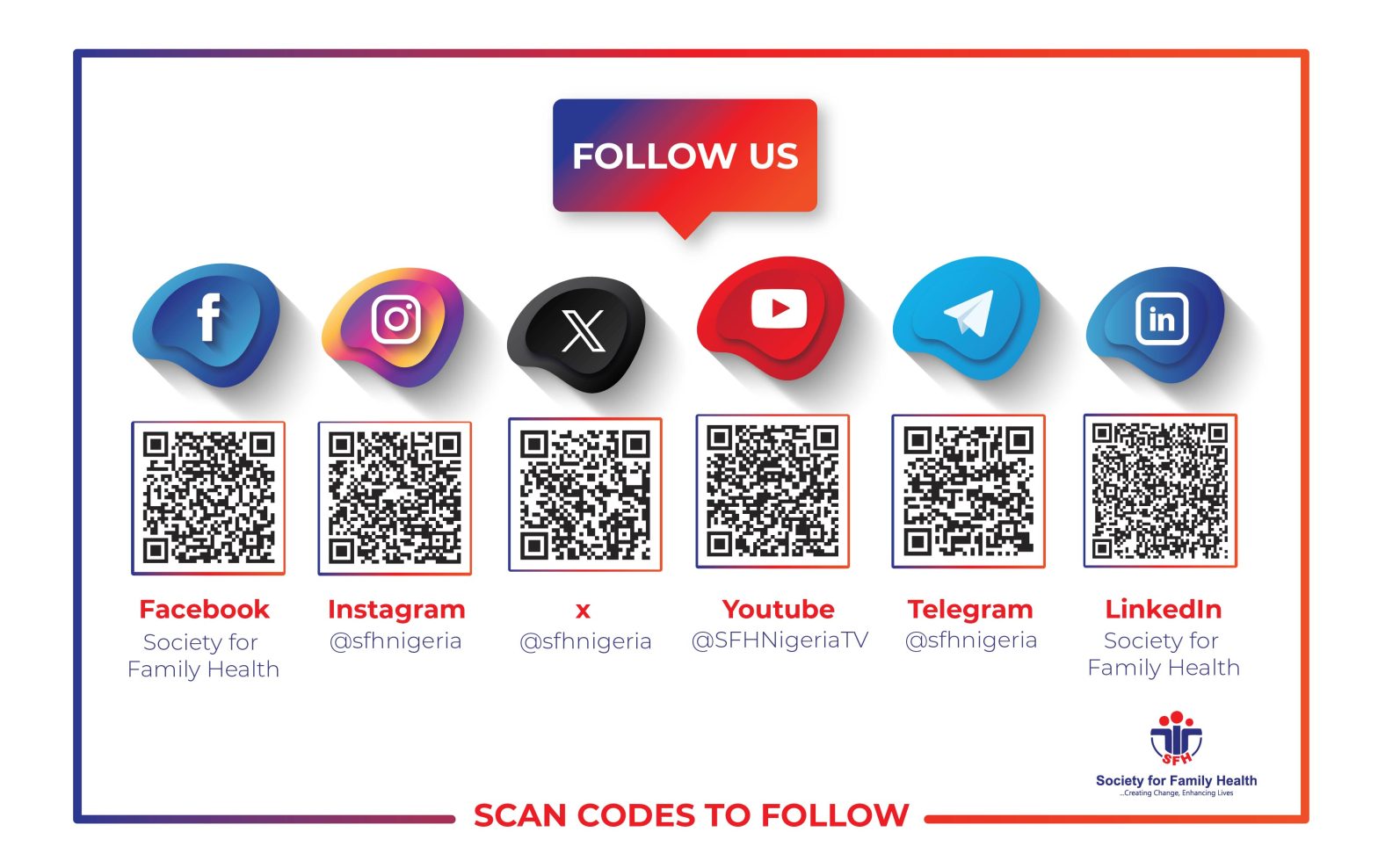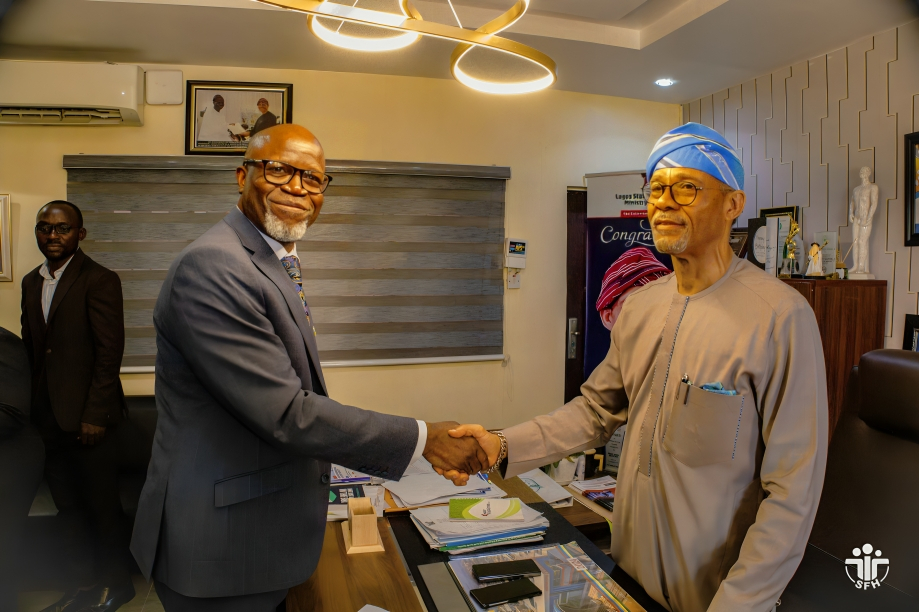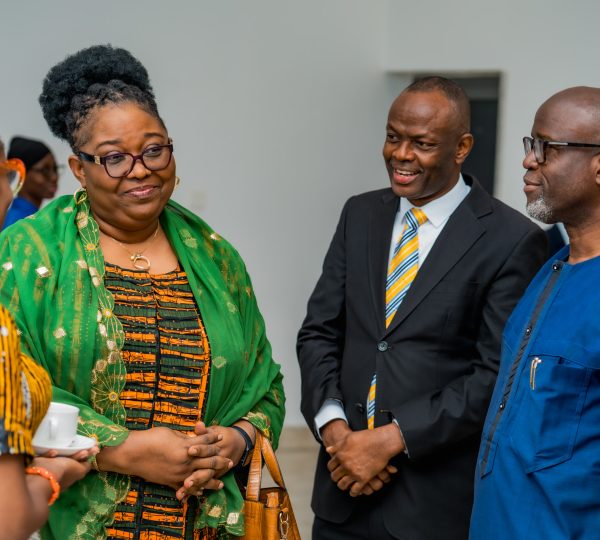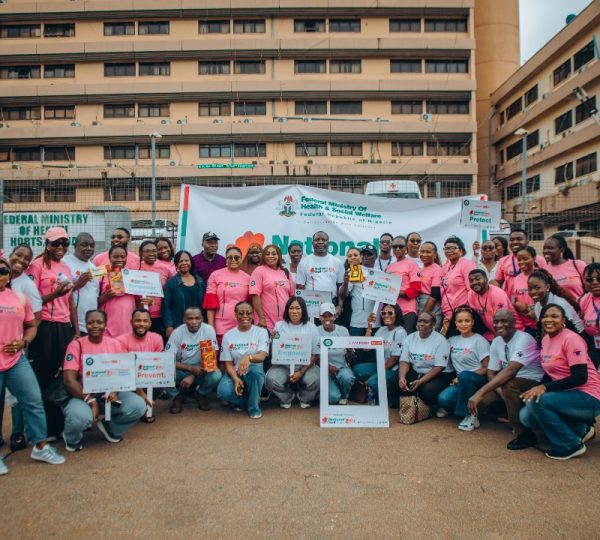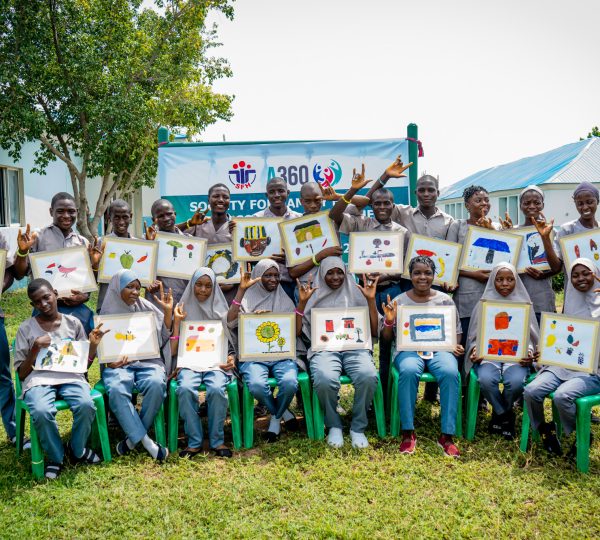News and Photo Stories -Week 43
SFH IN THE NEWS
Malaria: 3.1 million Ogun residents to benefit free insecticide treated net – SFH
No fewer than 3.1 million households in Ogun State will benefit from the insecticide treated nets, that will be distributed by the State government in collaboration with Global Fund Malaria (GFM) and Society for Family Health (SFH). The Project Director, Global Fund Malaria, SFH, Mr John Ocholi, who disclosed this at a media engagement in Abeokuta, Ogun State capital, decried the low level of insecticide-treated nets usage in the State, saying that the Ogun currently records 30 percent usage in Nigeria.
Click here to read more.
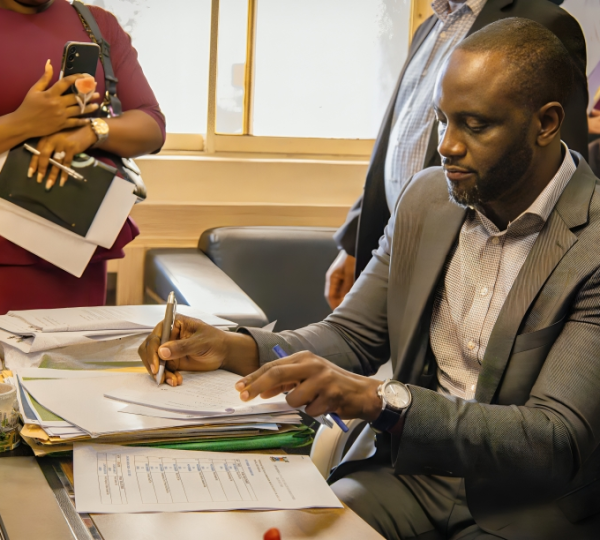

Telegraph, 22 October 2024
Lagos govt, SFH signs MoU to combat malaria in Lagos
The Society for Family Health (SFH) and the Lagos State Ministry of Health have signed a Memorandum of Understanding (MoU) on an initiative to combat malaria in Lagos State. The initiative under the World Bank-supported Malaria Impact Project, SFH will be deploying innovative strategies to reduce malaria burden by enhancing prevention and treatment services in both public and private healthcare facilities in the state. SFH is one of Nigeria’s largest non-governmental organisations, dedicated to providing high-quality health interventions for underserved populations in West Africa.
Click here to read more
SFH ACTIVITIES
Lagos State and SFH sign partnership as SFH leads Comprehensive Malaria Control Initiative in Lagos State through the Malaria IMPACT Project
Society for Family Health (SFH), in partnership with the Lagos State Ministry of Health, is spearheading a pioneering initiative to combat malaria in Lagos State. Under the World Bank-supported Malaria IMPACT Project, SFH is deploying innovative strategies to reduce the malaria burden by enhancing prevention and treatment services in both public and private healthcare facilities in the State. Nigeria remains among the countries most affected by malaria, with over 97% of the population at risk. In 2021, Nigeria accounted for 27% of the global malaria burden and 31% of malaria-related deaths, predominantly affecting vulnerable groups such as children under five and pregnant women. The Lagos State IMPACT Project seeks to address these disturbing figures by aligning with the National Malaria Strategic Plan (NMSP) and implementing evidence-based interventions.
During the official launch of the Malaria IMPACT Project, Dr Prof. Akin Abayomi, Commissioner for Health in Lagos State, expressed the government’s unwavering commitment to tackling malaria head-on. He highlighted the importance of this collaboration between the Lagos State Ministry of Health and Society for Family Health (SFH), describing it as a timely and crucial step in the state’s broader mission to improve public health. “Malaria continues to pose a significant threat to the well-being of our citizens, especially vulnerable groups like children and pregnant women. With this partnership, we are strengthening our healthcare delivery systems to ensure every resident, no matter where they are in Lagos, has access to prompt and effective malaria treatment and prevention services,” he said. Dr Omokhudu Idogho, Managing Director of SFH, also highlighted the project’s significance, stating, “We are proud to collaborate with the Lagos State Ministry of Health, the Local Government Areas (LGAs) and Local Council Development Areas (LCDAs) to significantly reduce the malaria burden in the State. This initiative brings us closer to a Malaria-Free Nigeria while strengthening healthcare systems to deliver equitable, high-quality malaria control services, particularly in underserved communities.”
The Malaria IMPACT Project focuses on the following core areas:
- Strengthening Malaria Diagnosis and Case Management: SFH will collaborate with the Lagos State Malaria Elimination Programme (SMEP) to enhance malaria diagnosis through the expanded use of Rapid Diagnostic Tests (RDTs) and microscopy. The initiative includes capacity building for healthcare workers to ensure accurate diagnosis and prompt treatment across public and private healthcare facilities.
- Community Engagement and Behaviour Change: SFH will partner with local grassroots organisations, Local Government health authorities and other groups to promote community mobilisation and foster behaviour change. The goal is to increase the use of insecticide-treated nets (ITNs), encourage prompt care-seeking for malaria, and improve adherence to treatment protocols in communities.
- Public-Private Partnerships for Malaria Elimination: SFH is driving innovative public-private partnerships by integrating private-sector clinics and other service delivery points into the broader healthcare system for malaria treatment, including digital solutions. This collaboration will enhance service delivery in a historically fragmented healthcare environment.
Dr Jennifer Anyanti, Deputy Managing Director of SFH, emphasised the importance of community engagement, stating, “Community engagement is central to our approach. By working closely with local organisations and stakeholders, we ensure that essential messages about malaria prevention and treatment reach even the most remote communities, thereby improving health outcomes for all and reaching the over 20 million residents of the state.” Dr Omokhudu Idogho further underscored the broader impact of the initiative, noting, “This collaboration positions Lagos State as a leader in healthcare innovation. By leveraging data and digital solutions, we are addressing critical health challenges and driving improvements that will benefit the entire healthcare system.” SFH, together with the Lagos State Ministry of Health and state agencies, remains committed to improving malaria care and working towards malaria pre-elimination in Lagos State.
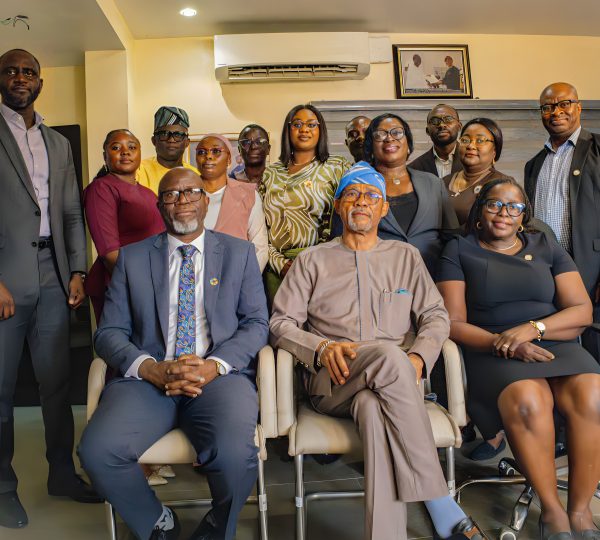
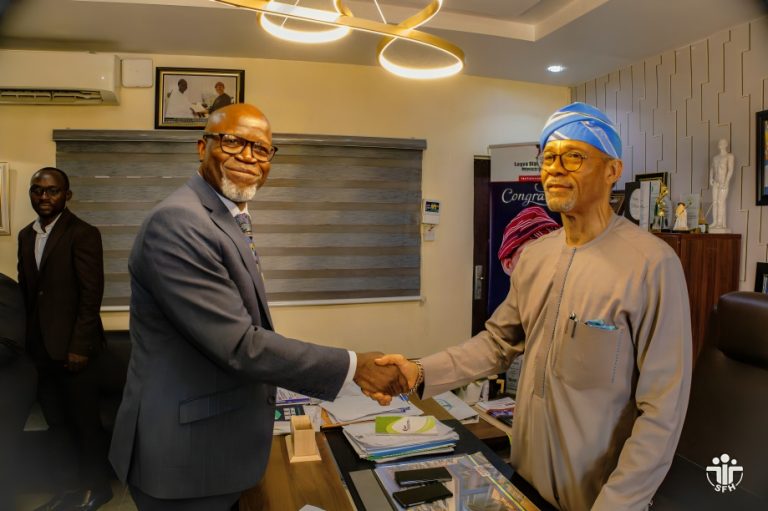
SFH at the Future of Health Youth Pre-Conference 2024
Society for Family Health Nigeria (SFH) participated in the Nigeria Health Watch 2024 Future of Health Youth Pre-Conference, themed “Amplifying Youth Voices for Climate-Health Action.” Dr Jennifer Anyanti, SFH Deputy Managing Director, delivered a guest address on behalf of the Managing Director, Dr Omokhudu Idogho. In her address, Dr Anyanti emphasised the importance of youth engagement in climate action, recognising young people not just as inheritors of a planet under stress but as powerful agents of change, capable of driving innovative solutions for a sustainable future. SFH also led a plenary session on the intersection of Climate Change and Adolescent Sexual and Reproductive Health (ASRH) where Dr Jennifer Anyanti highlighted the challenges young people face in accessing reproductive health services due to climate-related disruptions, including geographical and infrastructural barriers, financial constraints, and a lack of awareness about the link between climate change and health.
Ramatu Iyimoga, MAYE Lead A360 Nigeria, stressed the need for co-creating solutions with young people and building their capacity to take on leadership roles. Aisha Farida Aminu, Co-founder of Thinkgreen Foundation, discussed how climate change amplifies gender issues, urging the inclusion of climate-responsive initiatives like tree planting to mitigate these impacts. Abubakar Shuaibu, CEO of Green Energy Mission Africa, elaborated on the critical need for reliable energy supply in healthcare centres, capacity-building for communities, and partnerships with local and national bodies to address energy challenges. We are excited to see young people speaking out about climate change issues in Nigeria. Through our participation, SFH remains committed to advancing youth engagement and climate-health initiatives.
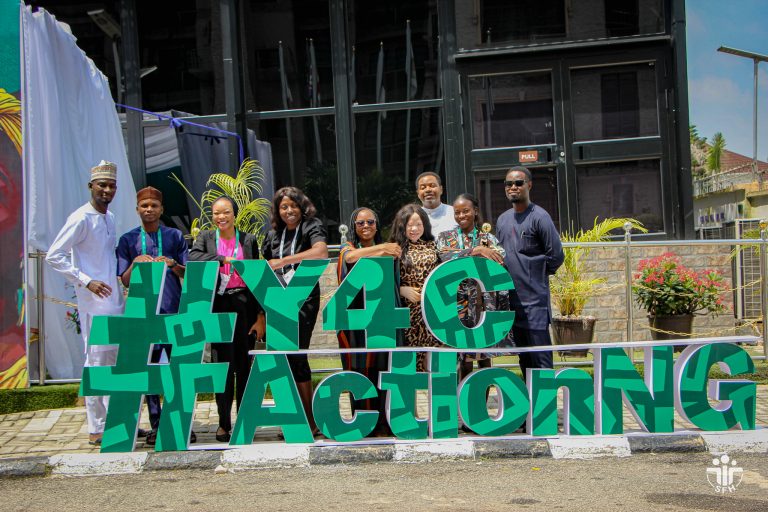
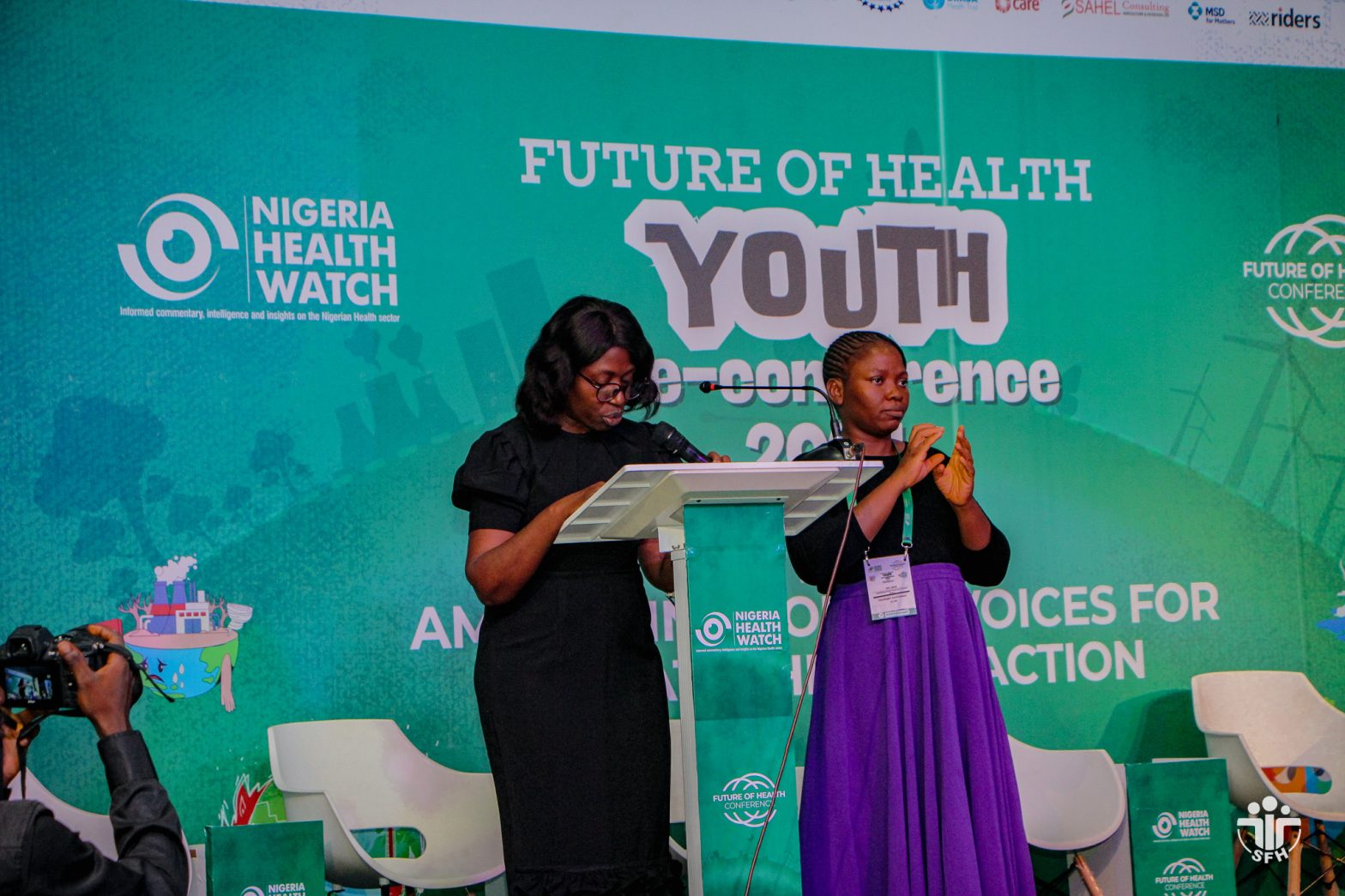
SFH PO attends Chartered Institute of Personnel Management (CIPM) International Conference & Exhibition (ICE) 2024
SFH People Operations team recently attended the Chartered Institute of Personnel Management (CIPM) International Conference & Exhibition (ICE) 2024, themed “Managing People and Businesses for Resilience.” This event brought together HR professionals, business leaders, and industry experts to explore strategies for building organisational resilience through effective people management. The conference provided a platform for exchanging ideas on trends and innovations to drive sustainable growth and business continuity in today’s unpredictable environment. A key takeaway from the conference was the importance of resilience-centered people strategies. Experts emphasised the need for organisations to cultivate agile workforces, implement robust talent management frameworks, and prioritise employee well-being. In addition, the critical role of technology and digital transformation in HR was discussed, with a focus on leveraging AI-driven recruitment systems, HR analytics, and automated engagement tools to streamline operations. These insights resonate with SFH ongoing efforts to use technology for operational efficiency and data-informed decision-making. Leadership development also emerged as a cornerstone of sustainable growth, with speakers stressing the value of nurturing leaders who can drive innovation and promote an adaptive organisational culture.
The focus on Diversity, Equity, and Inclusion (DEI) aligned with SFH commitment to promoting a diverse and collaborative workforce reflective of the communities it serves. The post-pandemic work environment and the need for employee engagement and well-being were other critical topics discussed at the conference. From remote work policies to mental health support, the conference shared actionable insights on how to create environments where employees can perform at their best. Discussions on employment outsourcing highlighted the legal implications associated with using outsourcing agencies, emphasising the importance of compliance with labour laws, an area SFH continues to prioritise in its operational practices. In conclusion, the CIPM ICE 2024 conference provided the participants with valuable insights to further align its strategies with the organisation’s goals of resilience, innovation, and sustainability. These learnings will strengthen SFH ability to navigate the evolving landscape while maintaining its mission to transform health service delivery, build effective community systems, drive policy reform, and enhance organisational effectiveness.
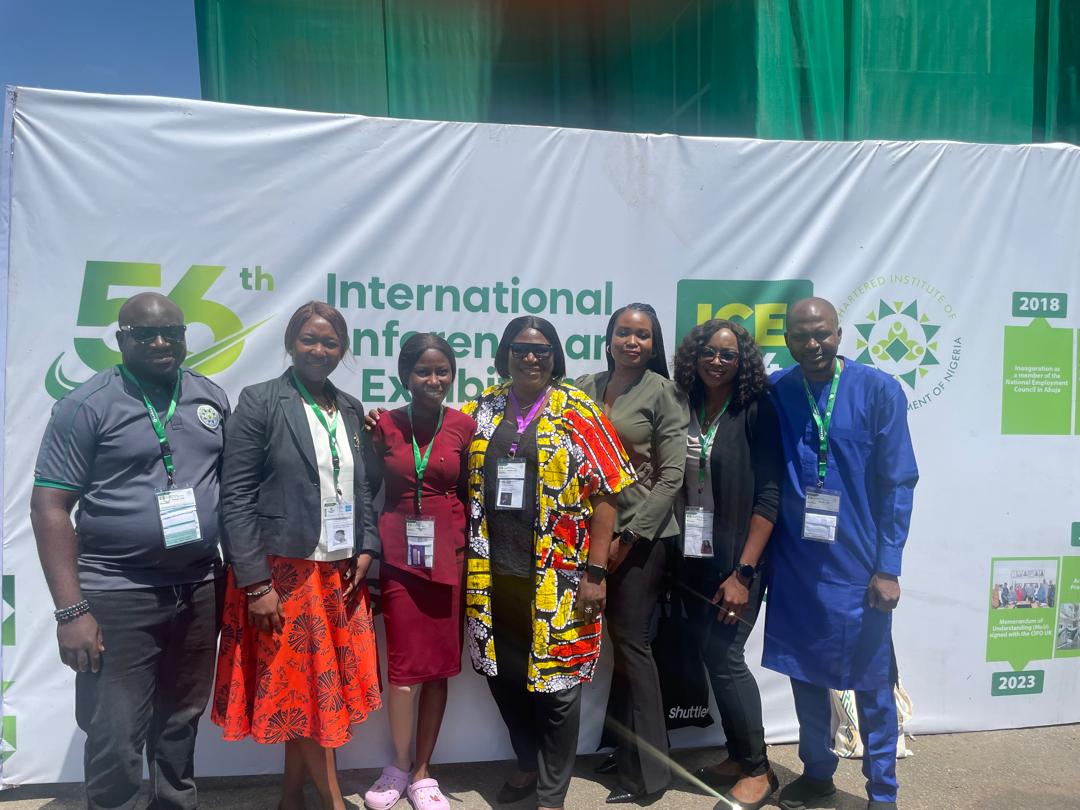
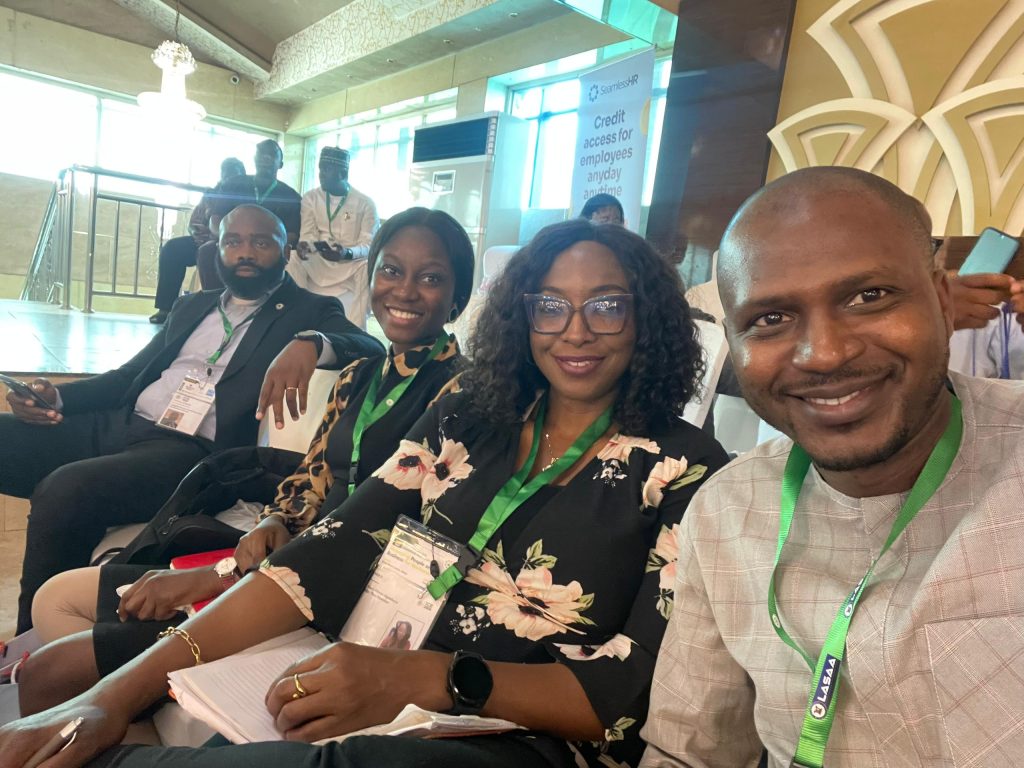
IntegratE project holds its Steering Committee Meeting with Stakeholders
The IntegratE project recently held its steering committee meeting, focusing on reviewing the project’s achievements, addressing challenges, and discussing emerging issues and the support needed to ensure the project stays on course. The meeting was attended by key stakeholders, including the Registrar of the Pharmacy Council of Nigeria, Pharm. I.B. Ahmed; Deputy Managing Directors of the Society for Family Health, Dr Jennifer Anyanti and Pharm Kene Eruchalu; Director & Acting Head of Reproductive Health at the Federal Ministry of Health (FMOH), Mr Lawrence Anyanwu; President of the Pharmaceutical Society of Nigeria (PSN), Prof. Cyril Usifoh; Representative of the Bill & Melinda Gates Foundation, Rodio Diallo; Representative of MSD for Mothers Foundation, Iyadunni Olubode; National Chairman of ACPN, Pharm. Ambrose Ezeh; Representative of the National Chairman of NAPPMED, Theophilus Odoh; and Directors of Pharmaceutical Services from the 11 implementing states. Other notable attendees included Ijeoma Nwankwo from PSN, regional managers of the IntegratE project, Jennifer Ladokun, Dayyabu Mahmud, and Johnson Ekele, as well as representatives from the Pharmacy Council of Nigeria, Solina Group, ANimpact, the Scale-Up Team, Population Council, and the IntegratE and PACS teams.
Pharm Kene Eruchalu, representing the Managing Director of the Society for Family Health, welcomed all attendees and emphasised how the IntegratE project aligns with SFH mission to enhance health outcomes by ensuring communities have access to affordable, quality healthcare services and commodities. He highlighted that the project reaffirms SFH’s long-standing belief, cultivated over 40 years, that the private health sector plays a pivotal role in achieving Universal Health Coverage in Nigeria.
In his opening remarks, the chairman, Pharm. I.B. Ahmed welcomed all attendees, emphasising that their presence demonstrated their commitment to the project and the importance of their roles in guiding the project to achieve its goals. He expressed appreciation to the project funders and stakeholders for their continued partnership. Goodwill messages were delivered by the Director of Reproductive Health at the FMOH, the representatives from the Bill & Melinda Gates Foundation, MSD for Mothers Foundation, the National Chairman of ACPN, the Representative of the National Chairman of NAPPMED, and the Director of Pharmaceutical Services. Each speaker expressed their appreciation to the steering committee for their dedication to helping the project reach key milestones and for their continued support in driving the project’s success. The Deputy Chief of Party, Michael Alagbile, presented a progress report, highlighting achievements and challenges over the past year. Pharm Ene Ebune-Daniel shared the Pharmacy Council of Nigeria’s (PCN) progress report, while Pharm Munir Elelu provided an update on advocacy support from PSNF. Toyin Akomolafe presented research updates from the Population Council, and Dr Sada Danmusa discussed the IntegratE Scale-Up Strategy and journey. Sebastine Ikejide delivered an update on PACS. The meeting also featured a Q&A session, where participants had the opportunity to raise emerging issues and propose practical solutions to drive the project forward.
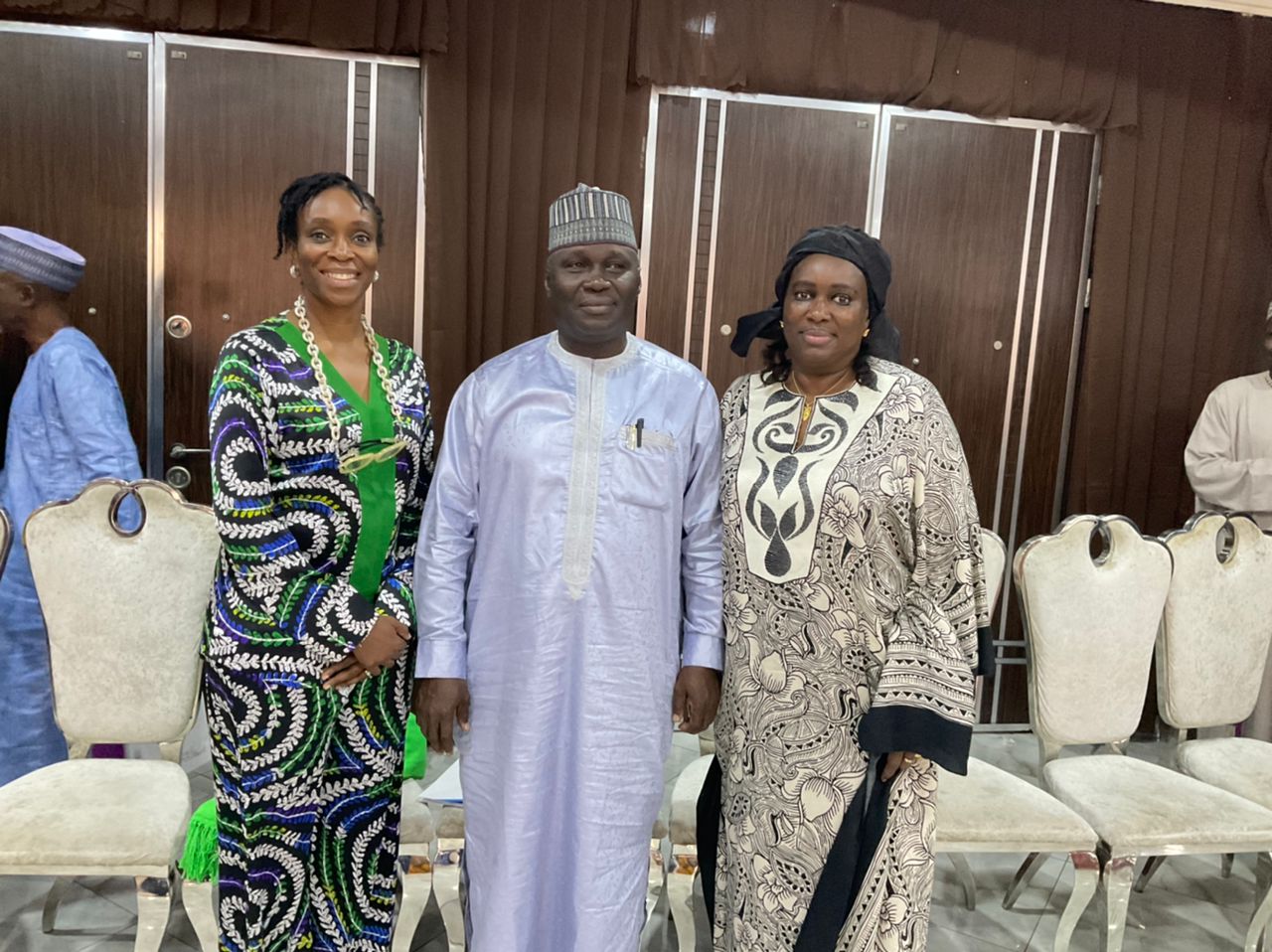
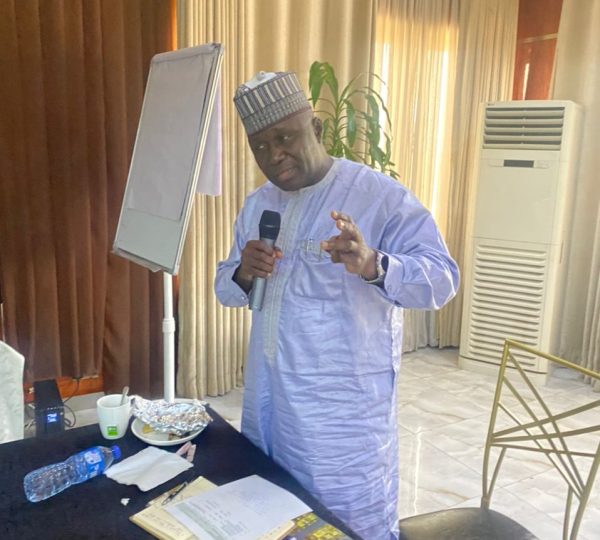
Bauchi State Empathy-Based Counselling for Self-Injection: A Key Step in Empowering Women’s SRH Choices in Nigeria
In today’s evolving global health landscape, ensuring women’s access to comprehensive sexual and reproductive health (SRH) services is more vital than ever. The DISC 2.0 project, funded by the Children’s Investment Fund Foundation (CIFF), continues to lead efforts in supporting women to take charge of their SRH needs. From October 8–10, 2024, the Bauchi State Primary Health Care Development Agency (BSPHCDA), in collaboration with National Primary Health Care Development Agency (NPHCDA) and DISC Project, conducted a State-level Training of Trainers. This training focused on the project’s flagship innovation, Empathy-Based Counselling for Self-Injection and Counselling-for-Choice (C4C). The primary goal was to improve client satisfaction with SRH services and reinforce self-care as a key component in family planning. The 3-day training equipped 20 Local Government Area (LGA) family planning (FP) focal persons, along with secondary and tertiary health facility family planning providers, with the tools and skills needed to support self-injection users with empathy and confidence. It also focused on overcoming common fears surrounding DMPA-SC self-injection, promoting client-centered communication, and ensuring that healthcare workers have up-to-date knowledge of family planning policies and practices.
Additionally, 20 M&E officers from various LGAs were trained on the effective use of NHMIS and NHLMIS data collection tools to accurately report FP data. This effort strengthens the capacity of the healthcare system to track the adoption and success of family planning initiatives, including self-injection. The Executive Chairman (EC) of the BSPHCDA, during his address, highlighted the importance of empathetic client education to ensure women can make informed decisions about their health that are free from misconceptions. He underscored the need for participants to transfer the skills and knowledge gained to healthcare providers in their respective LGAs, noting that the women they serve deserve high-quality care. Sharing a personal story, the EC recounted a situation where a family relative blamed a contraceptive method for side effects that were hereditary, demonstrating the importance of empathy and clear communication in SRH counselling. As DISC 2.0 continues to expand in Nigeria, the participants left the session with draft work plans for cascade training across Bauchi’s 20 LGAs, setting clear schedules and responsibilities to ensure that the lessons learnt at the training reach more than 500 frontline healthcare workers.
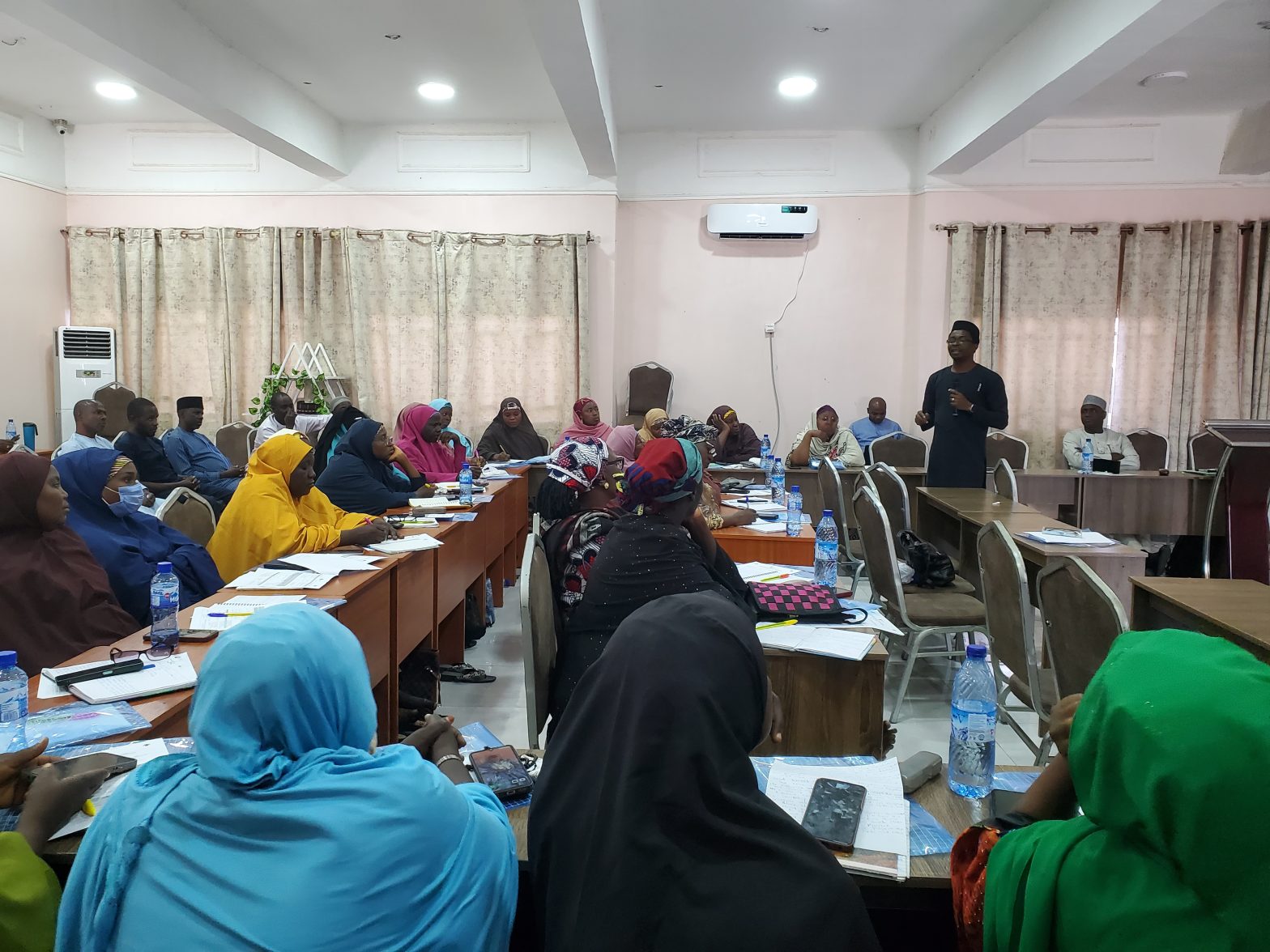
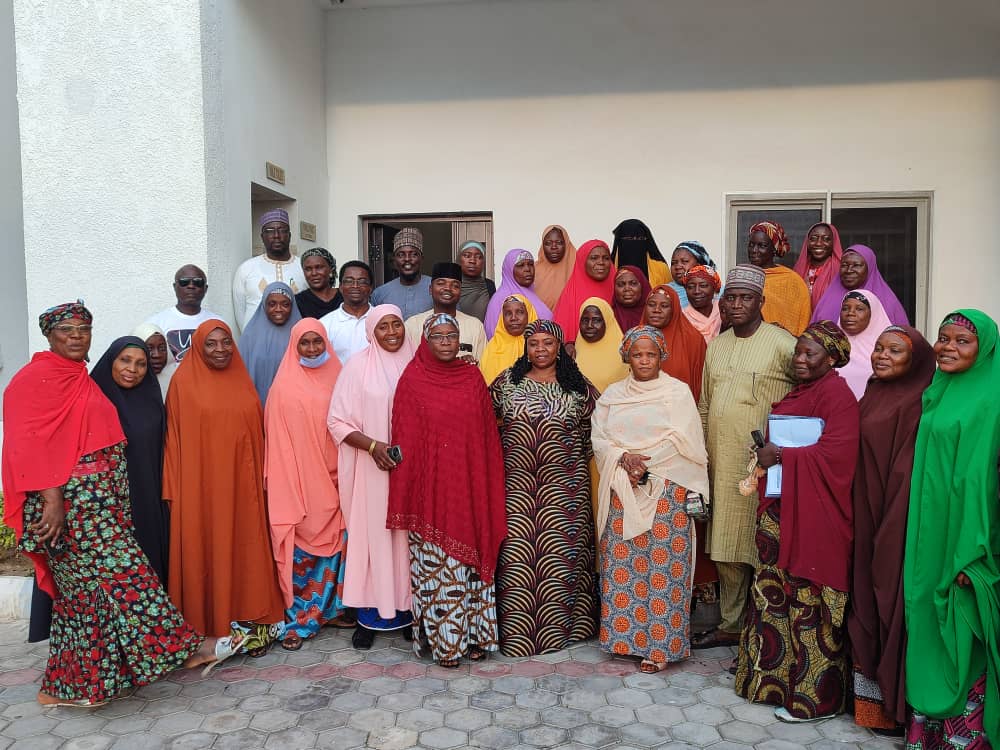
Article Alert
Diagnosis and Onset Of HIV Treatment Among Children And Adolescents In Nigeria: The Critical Role Of Health Education published in the Ibadan Journal of Sociology (IJS)
Read our recent publication on “Diagnosis and Onset Of HIV Treatment Among Children And Adolescents In Nigeria: The Critical Role Of Health Education published in the Ibadan Journal of Sociology (IJS)”. The findings of this research reveal gaps in paediatric and adolescent HIV services in Nigeria. This study was conducted in four Nigerian States in diverse geopolitical and cultural zones as a way of understanding the likely differentials in HIV diagnosis and onset of treatment of children and adolescents. The states include Anambra in Southeast, Rivers in South-south, Oyo in Southwest and Taraba in Northeast. The four states selected largely reflect Nigeria’s cultural and linguistic differences and could have explained some variations in the results. Apart from the general challenges related to finance, attitude of caregivers and poor access to facilities which are linked to several factors, each of the states and, in some instances, communities within states reported peculiar issues that undermined effective implementation of HIV programmes.
Click here to download.
Success Story
The IntegratE Impact: Moses Omachi’s Dedication to Grassroots Healthcare Empowerment
In the quiet community of Katengere, Billiri LGA, Gombe State, Moses Omachi is more than just a businessman. He is a dedicated healthcare advocate and a trusted provider, significantly influencing the health and well-being of his community. Mr. Omachi, a trained Tier 2 Patent & Proprietary Medicine Vendor (PPMV) owns City PMS, located along Katengere, near Tashan Gona, Billiri LGA. His journey from a small-scale patent medicine vendor to a valuable contributor in grassroots healthcare has been remarkable—a dynamic change made possible by his engagement with the IntegratE Project.
During a recent field visit to Billiri LGA for quality supportive supervision of trained providers, Moses shared a compelling testimony on the transformative impact the IntegratE Project has had on his practice and his sense of professional fulfilment. He detailed that before the IntegratE Project, he provided basic health services to his community but was constrained by limited knowledge and resources, particularly in family planning and primary healthcare. However, he knew the importance of offering quality healthcare services but lacked the capacity and training to fully meet his community’s growing healthcare needs. This changed upon his encounter with the IntegratE Project.
Click here to read more.
Weekly digest Quotes/Nuggets
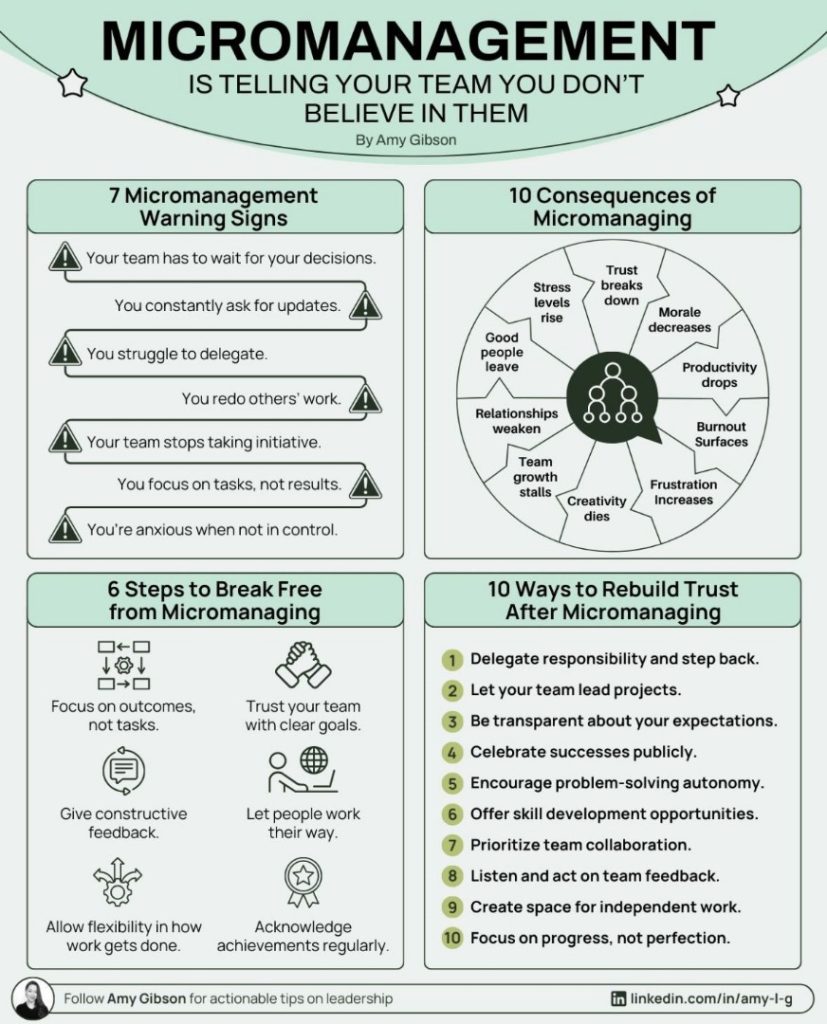
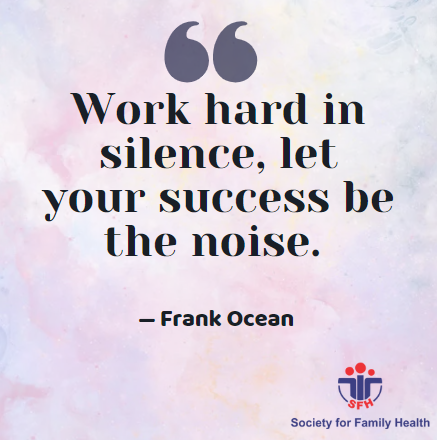
Catch up with some important updates
Stay Updated
- Love to read previous Comms News Reports? Click here
- Hey, amazing content for you to engage with on all our social media platforms. We would love to see your comments, likes and reactions.😍
Feel free to also share our posts.
